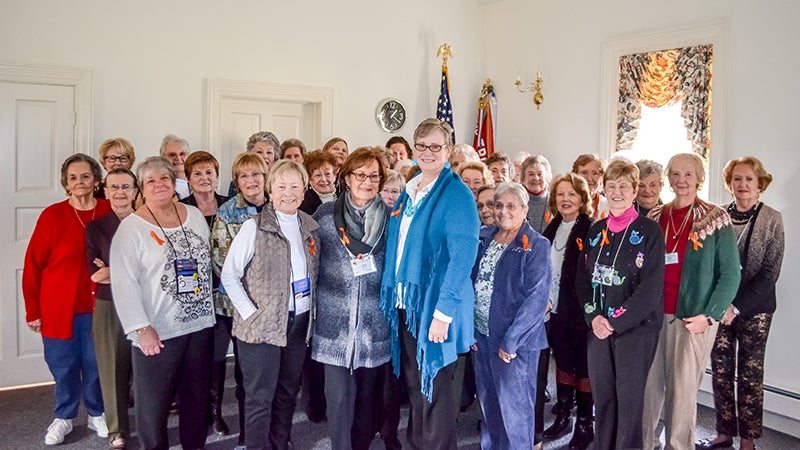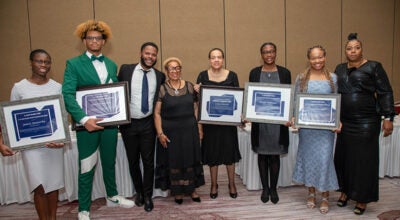Women talk college
Published 8:58 pm Wednesday, January 17, 2018

- The GFWC Junto Woman’s Club heard from Sandra Waters at its meeting Monday. Waters is the executive director of advising and transfer programs at Old Dominion University’s Student Success Center.
A local expert was in Suffolk Monday to talk about the realities and opportunities facing college students in today’s world.
About 30 members of the GFWC Junto Woman’s Club of Suffolk met with Sandra Waters at St. John’s Parish House for the talk. Waters is the executive director of advising and transfer programs at Old Dominion University’s Student Success Center. She’s been an active member of the National Academic Advising Association since 1993 and received NACADA’s Outstanding Advising Award in 2012.
She’s seen the shifts in ODU’s student population that mark the nationwide changes that have transformed the typical image of a student, including a transition from commuting to living on campus.
“I think we see a lot more of our students — even our students from Suffolk — want to live on campus and have that full campus experience,” Waters said.
Old Dominion University has 547 undergraduates and 96 graduate students from Suffolk enrolled this semester, according to Waters. The school had 19,540 undergraduates and 4,835 graduates in all enrolled last fall.
Waters commented on the increasing diversity among students nationwide. According to data from the Bill and Melinda Gates Foundation, 44 percent of students are non-white, 40 percent are ages 25 or older and 28 percent have children.
Waters explained that 62 percent of today’s college students have jobs along with their academics, and 26 percent work full-time. Just about every office at Old Dominion University has student employees, she said.
“I think one of the things Old Dominion does well is that we have students working on campus, so if they’re living on campus they don’t have to leave, and they can still make money for tuition, books, food and lodging,” Waters said.
New majors that serve modern industries, such as cybersecurity, are becoming increasingly popular among students, Waters said.
“It’s an interdisciplinary degree, so students take some computer science classes, business classes, criminal justice classes, depending on what track they want,” she said. “I think a lot of institutions across the country are trying to create these curricula that will meet the needs of society, and we have people ready to take on those challenges.”
One of the biggest obstacles for these challenges continues to be the cost of education. According to Waters, 33 percent of students today come from families earning $20,000 or less annually. In the 2016-2017 school year, 9,983 Old Dominion students received financial aid, according to collegedata.com.
The Junto’s Woman’s Club has donated two $1,000 scholarships to Suffolk high school seniors for the past several years. Members asked Waters questions for friends and family interested in going to school.
“The greater Suffolk community probably doesn’t know about the services ODU offers,” said Lorraine McGovern of the Junto’s Woman’s Club. “Now because we’ve had this program, some of them will.”
Citizens ages 60 and older are even able to audit courses for free at state universities like Old Dominion. Auditing a course means the student does not get a grade or credit but usually does so for the benefit of self-enrichment.
“I love the fact that I can tell my husband he can go back to school for free,” member Toni Davidson joked.
The value of higher education is quantifiable, as Waters explained how unemployment rates drop and median weekly earnings rise as people move toward higher degrees of learning. McGovern’s assessment aligned with this view.
“The population of students entering college has progressively risen because they’ve become very aware that their long-term earning potential is going to expand with higher education after high school,” McGovern said.






